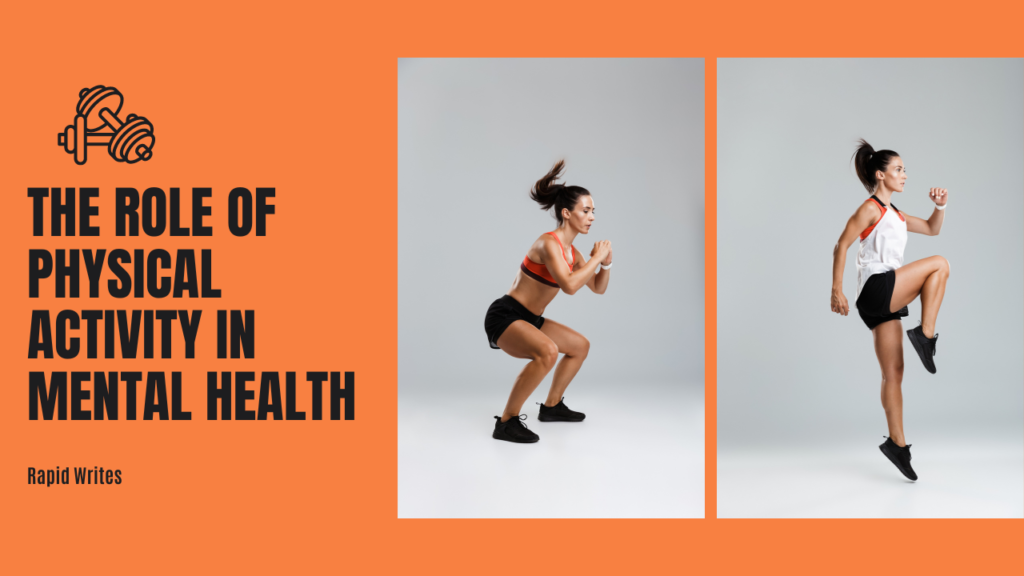Introduction
In today’s fast-paced world, mental health has taken center stage in discussions about overall well-being. Amidst the myriad of therapeutic approaches, physical activity emerges as a profoundly effective yet often underappreciated tool in enhancing mental health. This blog delves into the symbiotic relationship between physical exercise and psychological well-being, offering insights into how movement can be a catalyst for mental and emotional harmony.
The Science of Exercise and Mental Health
Physical activity is not just beneficial for physical fitness; it’s also crucial for our mental health. When we engage in exercise, our bodies release endorphins, often known as the ‘feel-good’ hormones. These biochemical changes play a pivotal role in reducing stress, anxiety, and symptoms of depression. Scientific studies consistently show that individuals who maintain regular physical activity exhibit lower rates of psychological distress. The evidence is clear: exercise can significantly improve mental health outcomes, offering a natural and accessible remedy to those seeking mental wellness.
Physical Activities and Their Mental Health Benefits
Each form of exercise brings unique benefits to our mental health:
Running and Cardiovascular Exercises: These activities are not just about endurance; they’re also incredibly effective at anxiety reduction and mood enhancement. The rhythmic nature of running can be meditative, providing mental clarity and a sense of peace.
Strength Training: Lifting weights is not only about building muscle but also about bolstering mental resilience. It empowers individuals, providing a sense of achievement and improved self-esteem.
Yoga and Mindfulness-Based Exercises: These practices unite the body and mind, promoting mental clarity and stress reduction. The focus on breathing and presence helps to calm the mind and reduce symptoms of anxiety.
Team Sports: Participating in team sports offers more than physical benefits; it fosters social connections and provides a sense of belonging and community, crucial elements for mental health.
Overcoming Barriers to Physical Activity
Despite the clear benefits, many face obstacles in starting or maintaining an exercise routine. Time constraints, lack of motivation, and physical limitations are common challenges. Overcoming these barriers requires setting realistic goals, finding activities that bring joy, and forming a supportive community. Remember, the journey to physical activity is personal and should be tailored to fit individual lifestyles and preferences.
Developing a Sustainable Physical Activity Routine
Creating a sustainable exercise routine is key to reaping long-term mental health benefits. This involves choosing activities that you enjoy, setting achievable goals, and gradually integrating physical activity into your daily life. Variety is crucial; mixing different types of exercises can keep the routine exciting and engaging. Tracking progress and celebrating milestones, no matter how small, can also provide motivation and a sense of accomplishment.
Real-Life Success Stories
Countless individuals have transformed their mental health through physical activity. From those who found solace in the quiet streets during a morning run to others who discovered community and support in team sports, the stories are varied and inspiring. These narratives underscore the power of movement in battling mental health challenges and highlight the diverse ways individuals can incorporate exercise into their lives for better mental health.
Conclusion
The relationship between physical activity and mental health is undeniable. As we navigate the complexities of modern life, incorporating movement into our daily routine offers a simple yet effective strategy for enhancing mental well-being. Whether it’s a brisk walk, a yoga session, or a game of basketball with friends, every step, stretch, and sprint is a step towards mental health. Let’s embrace physical activity not just as a means to physical fitness, but as a vital component of our mental health toolkit.
Physical activity stands as a testament to the power of movement in not only shaping our bodies but also in fortifying our minds. It’s a reminder that in the pursuit of mental health, every movement counts, and the journey towards well-being is within our stride.



